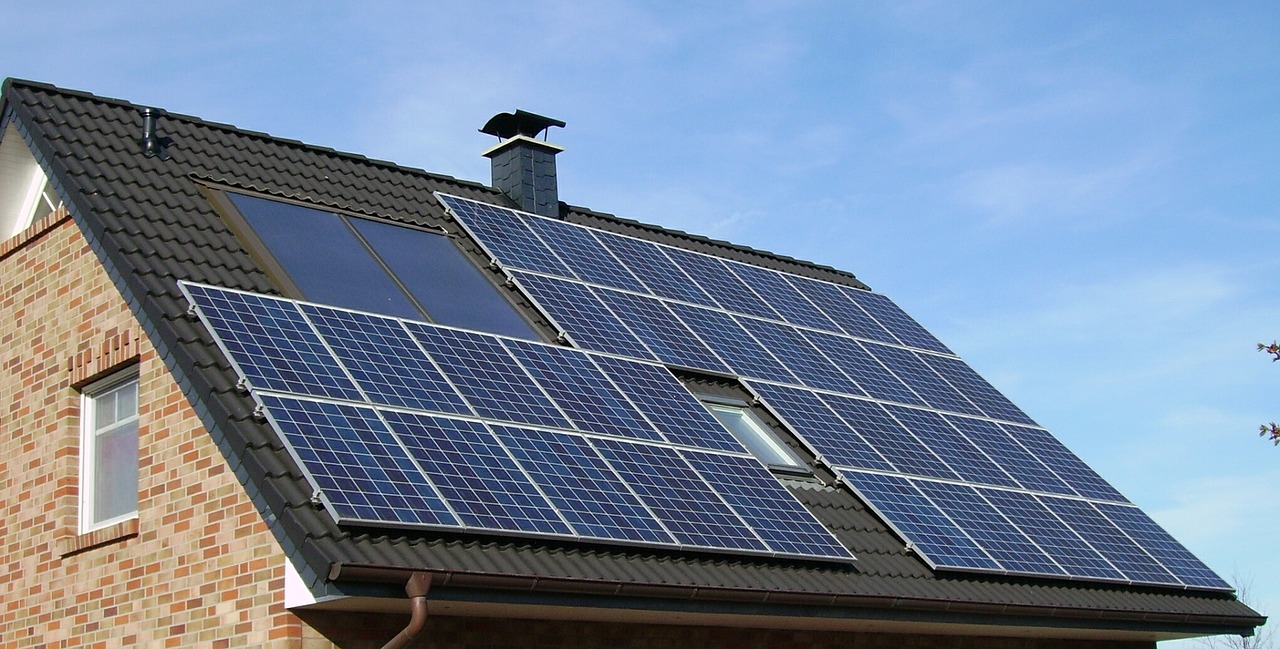Frequently Asked Questions About Amendment 1:
What is Amendment 1?
Amendment 1 is made for Florida’s electricity consumers, like you. It guarantees your right to place solar panels on your home, if you so choose. And it places that right in Florida’s constitution, where politicians and special interests can’t tamper with it.
We think solar is an essential part of Florida’s energy future—after all, this is the Sunshine State. Just as importantly, we don’t think Floridians should have to sacrifice basic consumer protections just to enjoy greater access to solar energy. That’s what Amendment 1 is all about: greater access to solar and common sense consumer protections that safeguard against rip-offs, scam artists and long-term contract traps.*
Why does 60 plus support Amendment 1?
60 Plus strongly supports an all of the above energy portfolio including solar energy; Amendment 1 will open up barriers to solar energy in the state while protecting seniors and other vulnerable populations from higher energy prices and consumer fraud experienced in other states that do not have these protections.
Why should seniors vote for Amendment 1?
Amendment 1 puts consumer protections in place that keep the bad players in the solar industry from preying upon Florida’s most vulnerable including seniors as they have in several other state.
Amendment 1 guarantees that state and local elected officials, those best equipped to recognize the unique needs of their own communities, are able to set the policies that will fit their needs and protect their residents.
How will Amendment 1 protect against rising utility prices?
Amendment 1 will prevent increases seen in other states by guaranteeing that the cost of solar is not offset by non-solar users. Amendment 1 includes
language that specifically protects non-solar users by making sure they are not paying for their neighbors share of the utility infrastructure.
How Does Amendment 1 protect seniors from fraud?
Amendment 1 keeps solar’s bad players away from seniors by allowing consumer protections to be put in place that keep seniors safe from scam-artists and long term contract traps.
What about the arguments of Opponents of Amendment 1?
Voters need to ask themselves why opponents of Amendment 1 have spent so much of their time and money to fight against constitutional language that would insist on honest dealings by solar companies and protect non-solar consumers from higher energy rates? They say this will prevent solar growth. Can you imagine any other industry saying fraud prevention and a ban on cost shifting would prevent their industry from growth?
What exactly does Amendment 1 do?
Amendment 1 guarantees your right to put solar panels on your home. It also allows individuals and businesses to own and lease solar equipment.
Amendment 1 also allows for commonsense consumer protections that safeguard solar customers from fraudulent practices, like long-term contract traps and overbilling.
Lastly, Amendment 1 ensures that all electricity consumers are treated fairly. If you do not choose solar, Amendment 1 makes sure that you are not forced to subsidize the energy choices of those who do.*
Will Amendment 1 increase access to solar energy in Florida?
Yes! Amendment 1 will promote the increased use of solar power in Florida by safeguarding solar rights in Florida’s constitution, allowing for commonsense consumer protections, and ensuring that all Floridians are treated fairly, whether they choose to put solar panels on their home or not. Putting this framework into the state Constitution creates certainty for those contemplating an investment in solar.
 By guaranteeing your right to own solar panels and paving the way for commonsense consumer protections, Amendment 1 ensures that solar is done the right way. That’s an important part of getting solar off the ground and ensuring that it is viewed as a legitimate, practical energy option—rather than a magnet for rip-offs and scams.*
By guaranteeing your right to own solar panels and paving the way for commonsense consumer protections, Amendment 1 ensures that solar is done the right way. That’s an important part of getting solar off the ground and ensuring that it is viewed as a legitimate, practical energy option—rather than a magnet for rip-offs and scams.*
How does Amendment 1 affect those who do not choose solar?
Good question! We love solar, but we understand that solar energy may not be right for everyone. Amendment 1 ensures that those who do not wish to lease or buy solar energy are treated fairly. That means ensuring that our public officials maintain their ability to stop unfair subsidies. Believe it or not, some special interests want to force those who don’t choose solar into subsidizing the energy choices of others. Worse yet, they want our elected officials to be powerless to stop these subsidies. Amendment 1 protects the rights of consumers who don’t choose solar too.*
Does Amendment 1 prohibit 3rd party sale of solar electricity?
No. Amendment 1 neither authorizes nor prohibits this business model. It just makes sure that if it is authorized in the future, our elected officials will maintain their authority to provide the same types of consumer protections that all electric consumers in Florida enjoy today.*
* Indicates answers provided by Consumers for Smart Solar FAQ’s.
Actual Amendment Text:
Ballot Title:
- 1 CONSTITUTIONAL AMENDMENT ARTICLE X, SECTION 29 (INITIATIVE)
Rights of Electricity Consumers Regarding Solar Energy Choice
Ballot Summary:
This amendment establishes a right under Florida’s constitution for consumers to own or lease solar equipment installed on their property to generate electricity for their own use. State and local governments shall retain their abilities to protect consumer rights and public health, safety and welfare, and to ensure that consumers who do not choose to install solar are not required to subsidize the costs of backup power and electric grid access to those who do.
Financial Impact Statement:
The amendment is not expected to result in an increase or decrease in any revenues or costs to state and local government.
Full Text via Florida Department of State, Division of Elections
ARTICLE X Miscellaneous
Section 29 – Rights of electricity consumers regarding solar energy choice. –
(a) ESTABLISHMENT OF CONSTITUTIONAL RIGHT. Electricity consumers have the right to own or lease solar equipment installed on their property to generate electricity for their own use.
(b) RETENTION OF STATE AND LOCAL GOVERNMENTAL ABILITIES. State and local governments shall retain their abilities to protect consumer rights and public health, safety and welfare, and to ensure that consumers who do not choose to install solar are not required to subsidize the costs of backup power and electric grid access to those who do.
(c) DEFINITIONS. For purposes of this section, the following words and terms shall have the following meanings:
(1) “consumer” means any end user of electricity regardless of the source of that electricity.
(2) “solar equipment,” “solar electrical generating equipment” and “solar” are used interchangeably and mean photovoltaic panels and any other device or system that converts sunlight into electricity.
(3) “backup power” means electricity from an electric utility, made available to solar electricity consumers for their use when their solar electricity generation is insufficient or unavailable, such as at night, during periods of low solar electricity generation or when their solar equipment otherwise is not functioning.
(4) “lease,” when used in the context of a consumer paying the owner of solar electrical generating equipment for the right to use such equipment, means an agreement under which the consumer pays the equipment owner/lessor a stream of periodic payments for the use of such equipment, which payments do not vary in amount based on the amount of electricity produced by the equipment and used by the consumer/lessee.
(5) “electric grid” means the interconnected electrical network, consisting of power plants and other generating facilities, transformers, transmission lines, distribution lines and related facilities, that makes electricity available to consumers throughout Florida.
(6) “electric utility” means any municipal electric utility, investor‐owned electric utility, or rural electric cooperative which owns, maintains,
or operates an electric generation, transmission, or distribution system within the state.
(d) EFFECTIVE DATE. This section shall be effective immediately upon voter approval of this amendment.

